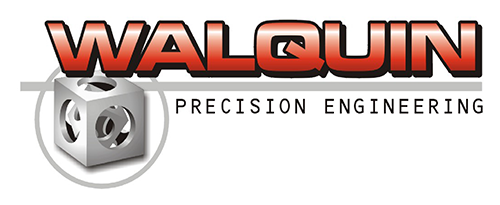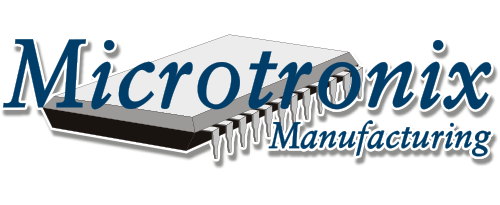Lodox Systems: Diagnosis: Good Growth in 2021
South African manufacturing business, Lodox Systems, has managed to continue growing despite the tough conditions resulting from the Covid-19 pandemic. “It has impacted our ability to go out and market our life saving solution. It has also impacted our supply chain, logistics and our ability to service sites and keep contact with customers,” CEO Mbuyazwe Magagula tells Enterprise Africa.
2020’s intense and severe focus on global healthcare systems has brought to the fore shortcomings across almost all geographies. Innovation at lightning speed has been required to halt a pandemic where the lethal effects of an unknown virus have been quite clear.
As more information filtered through the medical industry about how to treat the millions of Covid-19 sufferers and stem the spread of the virus, the world has slowly turned a corner. But the repatriation of resources has left many without the care they need. It’s a conundrum on top of a crisis; one that will last a generation.
In the future, high quality, effective, proven, and affordable innovation will be essential for healthcare providers. The need for investment is now crystal clear. Fortunately, this is where South Africa’s Lodox Systems can contribute.
This life saving company manufactures a unique and remarkable full-body x-ray imaging machine that delivers high-quality diagnostic images at top speed while producing very low radiation dose. Used in trauma and forensic pathology centres, the Lodox Xmplar-dr and eXero-dr systems are recognised as industry-leading equipment and have been installed in hospitals around the world.
In August 2019, Lodox CEO Mbuyazwe Magagula told Enterprise Africa that the company was keen on furthering its international exposure and would look to build on its already impressive global presence.
But that progress has obviously slowed following a year of disruption and stagnation.
TRYING AND DIFFICULT
“It’s tough with the pandemic and we continue to experience spikes in infections, but it is levelling off. It’s tiring and difficult to operate in this environment, but we have to,” admits Magagula. “The government continues to try and get economic activity moving and not shut things down further. December and January were very bad and the situation deteriorated quickly.
“However, we are still here, we are still operating, thankfully there has not been a huge impact, and we are optimistic. This has largely been through the efforts of our dedicated staff and the support of our loyal customer base and the fact that Lodox provides a world class lifesaving solution, fully African developed.”
The last two years have been good for Lodox with sales improving and the hype surrounding the machine after its appearance in American hospital TV drama, Grey’s Anatomy, still fresh in people’s minds.
“Since 2019 we have stabilised,” confirms Magagula. “We have seen good growth in the number of units that we are selling, both for the year ending March 2020 and March 2021. The pipeline looks promising, so we haven’t been heavily impacted by Covid-19, at least on the sales side where we have continued to see some growth.”
However, operational performance and various working processes have obviously required adjustment so that the business can maintain efficiency and quality for clients.
“We largely rely on face-to-face interactions and marketing at industry events, conferences and exhibitions, and these have not happened recently. We tried to attend some virtually and we have seen a mixed response. From a marketing perspective, it has impacted us as we are just not able to get around,” Magagula states.
“We have installations locally and globally, and from an after sales point of view, when there was a harsh lockdown locally, it was very hard for our service and maintenance and customer relations teams to keep in touch with sites and customers.
“On the supply chain side, problems persist. Some of our suppliers have faced disruption, especially where they are based in the UK, where they have been unable to access raw materials. That, in turn, has impacted us as we cannot always deliver machines on time. There have been general delays just because they are under severe restrictions. We have largely been able to manage this.
“On the logistics side, in terms of shipping machines, it has been problematic because of a lack of scheduled flights and the cost involved,” he adds. “We are starting to see availability return but the cost still remains high – almost three times what we were paying before, and we haven’t been able to pass that on, so it is eating into our margins.”
LONG TERM COST
In terms of regular operational expense, the company has been forced to spend a bit more on health and safety, but Magagula is happy to ensure the safety and well-being of the team.
“On the operational cost side, with health and safety – providing PPE and ensuring the premises are clean – it has not impacted us too much but it is an extra cost we cannot ignore.”
Where Lodox has been successful in its daily work over the past year has been in relation to virtual communications. Connecting with clients and training operators has become much easier thanks to technology developments catalysed by the onset of the pandemic.
“There has been a positive in the sense that the remote support to clients, in terms of training and service, has been accelerated,” says Magagula. “We need to be able to do the basic service and maintenance, even remotely, if we can. In the past, if a client came to us with a problem, we would have to jump on a plane or get in a car and drive. Now that we cannot do that as easily, we are looking to help remotely and only travel if it’s necessary.”
Obviously, the rapid switch from face-to-face to digital has highlighted some challenges for Lodox, but the company’s leadership has vast experience and is happy to adjust its approach to quickly overcome hurdles.
“There has been a positive shift in our working patterns. Staff that can work from home are encouraged to do so,” says Magagula. “We are also a manufacturing site and we need our technical assembly staff on site, so there has been stress with some working remotely and some on site. We have tried to update our mindset and manage the situation for results, and that does take some getting used to.
“People are working remotely and they have objectives that have been set and we are monitoring the deliverables, but as long as we achieve results then we have no problem with people working remotely. It does take some adjusting though as we are used to work being a place you go to and not something you can do away from the office. We also have to be careful that team dynamics, connectedness and company culture are maintained.”
NEW OPPORTUNITIES
The attraction of Lodox machinery includes its South African-manufactured credentials, high-quality imagery, high speed and low radiation dose, proven results and many case studies of involvement in life saving diagnostics, and the ability to capture a whole-body image in a very short time thus giving the clinician full information on a patient’s injuries.
These attributes are why the current iteration of Lodox machines remain well-received. But innovation is at the heart of the company and so Lodox will continue to invest in research and development with the goal of improving and developing new technologies – perhaps in improving on price offerings for emerging markets.
“We are still working on improving the same machine, both on the trauma side in emergency hospitals and for forensics in mortuaries. Those are our two key markets but we have started looking at the development of an entry-level machine,” details Magagula. “We are still around 18-months away from rolling this out, but it will be happening, and it will help us service a market where high capital costs are a barrier. Some facilities do not see the level of trauma or the number of cases in a mortuary to justify that capital expenditure, so the entry-level machine will be lower price but will have the same functionality in terms of image quality, speed and radiation safety. It will be designed differently to bring the costs down and that is why we are still some time away because we have to go through the entire design process and certification requirements before we can launch.”
Importantly, Lodox is backed by successful accreditation from various international bodies including ISO 13485 quality system certification, MDSAP quality system certification, CE Mark and US FDA (21 CR Part 820) compliance.
Because of this focus on quality, manufacturing, and sales and marketing experience, Lodox was approached regarding a new product for use in the medical environment, and Magagula is excited about what the future could hold.
“We are looking at a primary healthcare imaging product aimed at maternity departments to monitor pregnancy. It has been developed in South Africa and Lodox was selected as the commercialisation partner. There is still some work to do in terms of looking at the markets and how big the opportunity is, whether a machine like this will address a market need, as well as how we manufacture it and get it to the market. It will have to go through a registration process and so remains 18-24 months away,” he says.
The Lodox offering was preferred for this project because of the complete package that the company can offer, covering the entire value chain, and keeping development and distribution centralised. This is a key selling point for the business and one which Lodox is proud of.
“The partner went out and offered a request for proposals locally for medical device companies that could help them to commercialise and what swung it in our favour was us being fully integrated in terms of research and development, manufacturing, sales and marketing, service and maintenance, and training – it’s a whole value chain and they found that attractive. Our technical capabilities were also a factor, alongside the registrations and certifications that we hold,” he says.
RETURN TO THE STUDIO?
In March 2013, the 18th episode of Grey’s Anatomy’s ninth series was broadcast to more than nine million American viewers, with the Lodox scanner performing a full body x-ray in seconds. From this moment on, the machine and the brand had recognition despite being displayed in the fictional medical world. But even then, Lodox scanners were active in real hospital emergency rooms, saving lives with each use.
After a tough year for healthcare professionals and the wider industry, 2020 did feel like something from a Hollywood script. But with the good work being done internally, Lodox has managed to grow and expand its important influence. With new ideas being rolled out and existing sites being serviced in new but efficient ways, the future for this pioneering South African outfit looks bright.
As for TV appearances, Magagula does not have anything in the pipeline… for now.
“Interestingly, we were approached by a US-based TV production company who were working to very tight deadlines and who needed us to provide a Lodox machine, but they wanted to use it to show someone’s head being scanned in relation to Alzheimer’s. We had to decline because of the timing, and we felt it was slightly misleading to display the Lodox machine scanning for Alzheimer’s, which it cannot do.”


